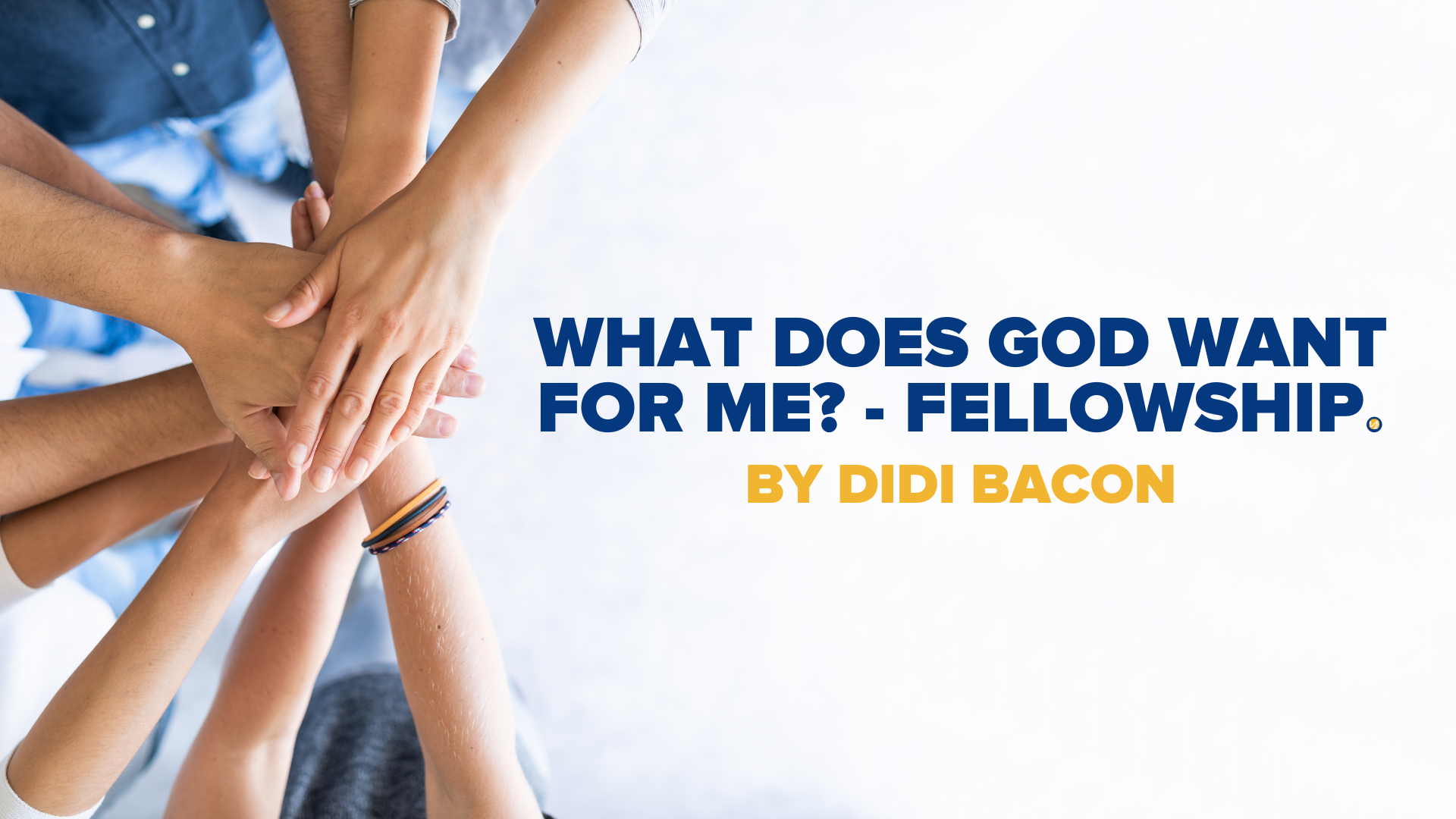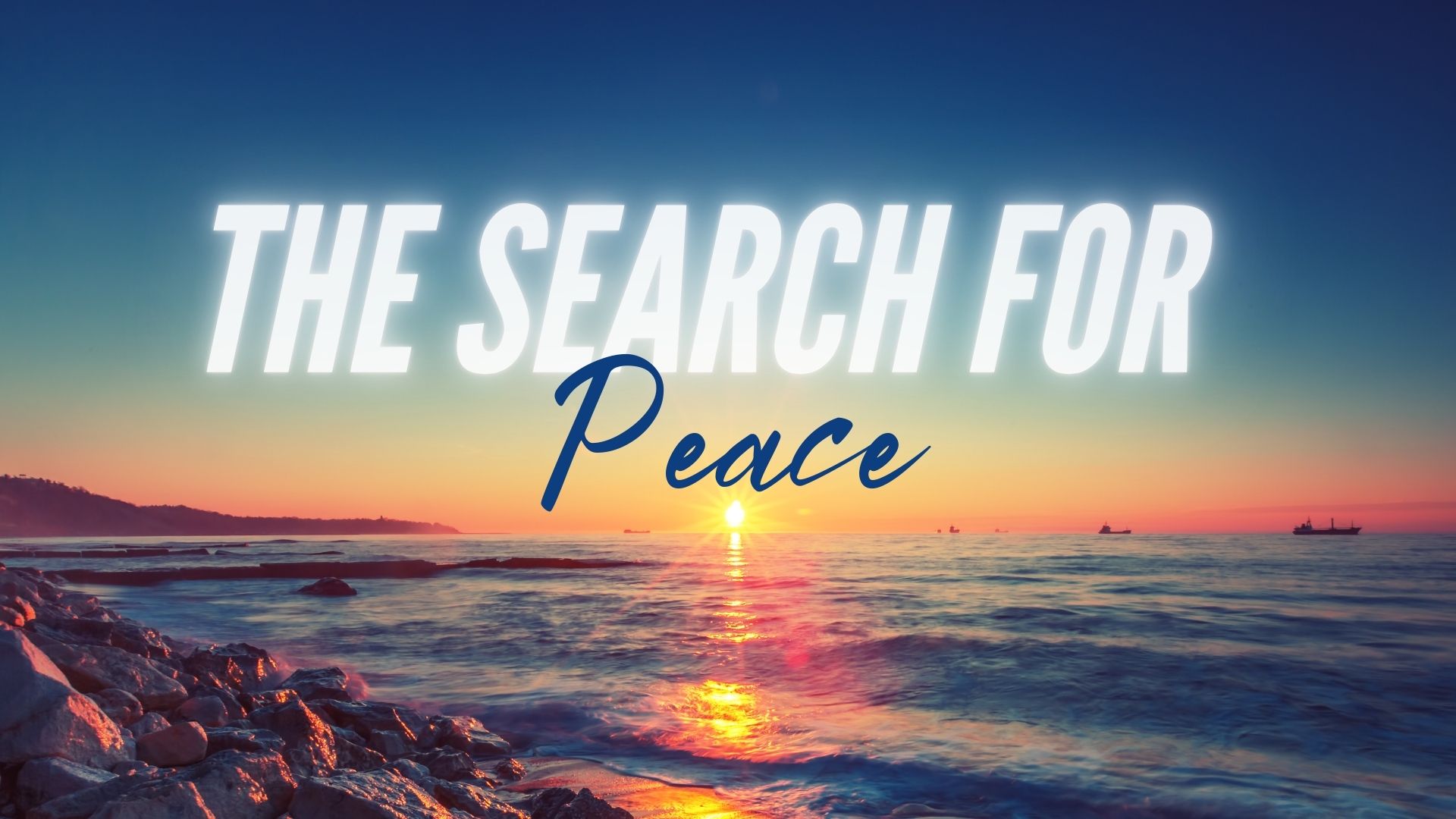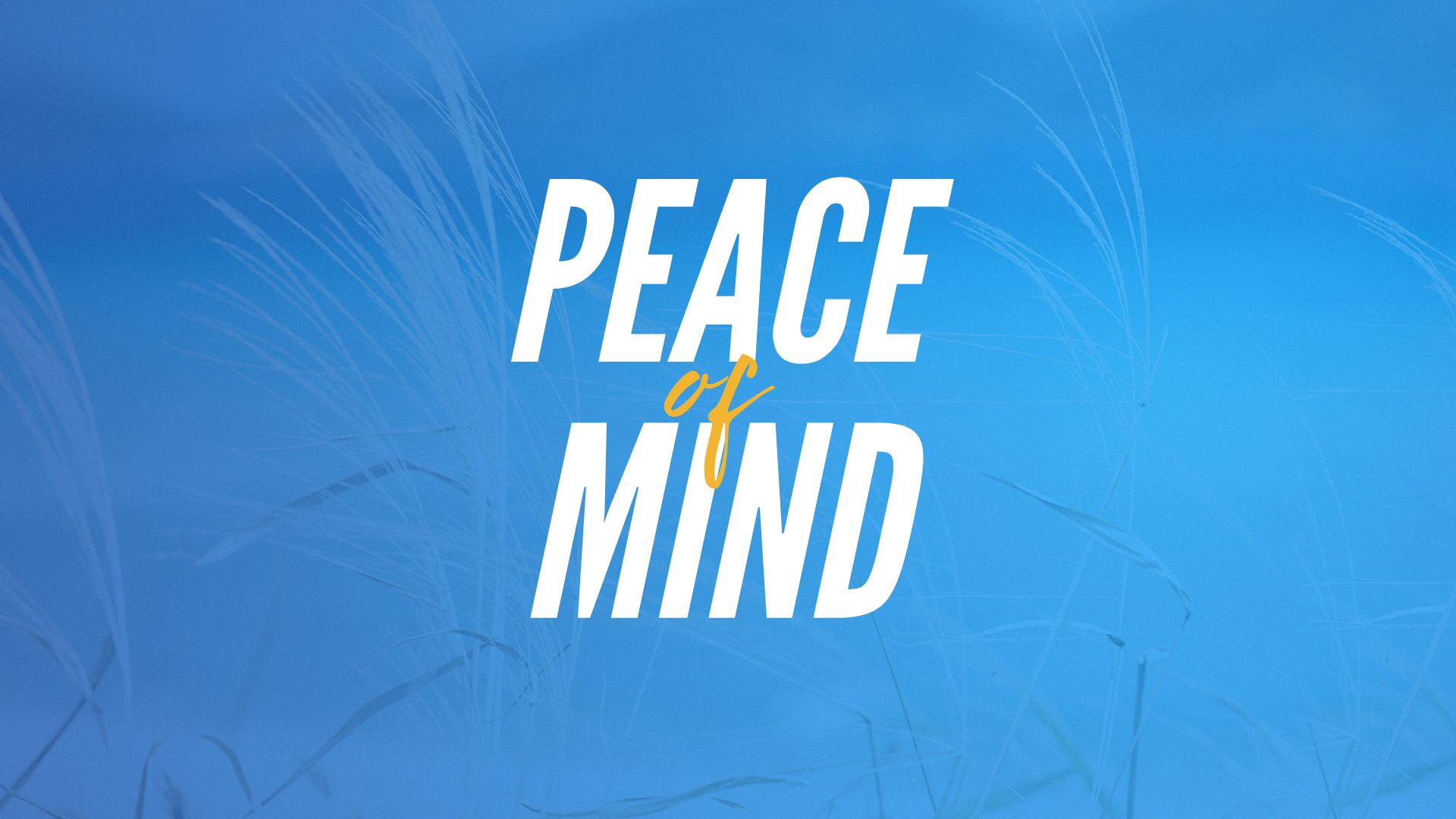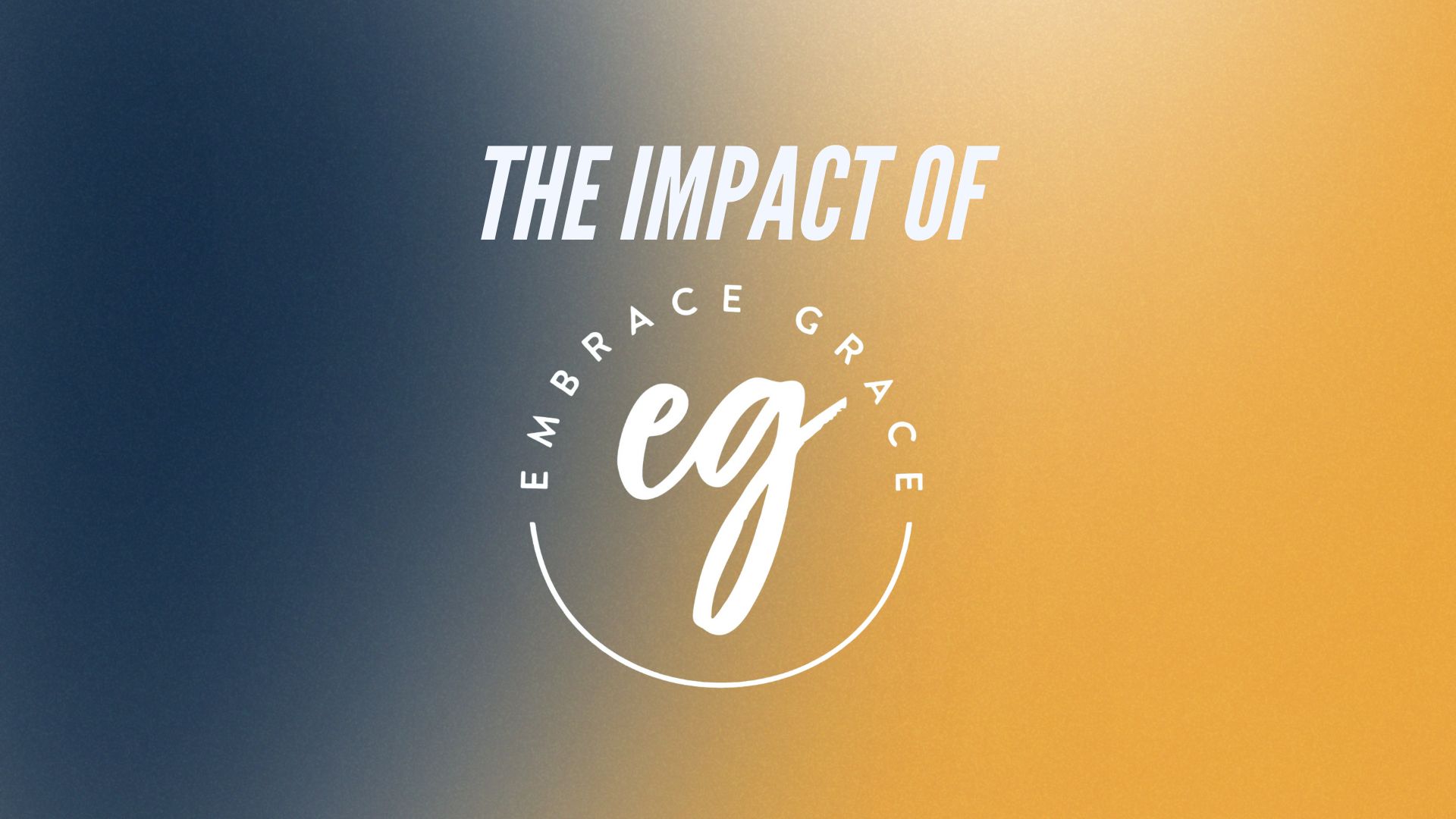There is a theme that runs throughout the Bible, from the beginning in Genesis to the end in Revelation. What God wants for me is fellowship. Fellowship basically means “sharing life in common.” It is a relationship word. It is “I-need-you-You-need-me” word. God created us for fellowship. Fellowship with Him and fellowship with each other. Jesus said the greatest of all the commandments is to love God with all your heart and to love your neighbor as you love yourself. How does that work? It works in fellowship.
The apostle John brings this all together when he said:
“This is the message we have heard from Him and announce to you, that God is Light, and in Him there is no darkness at all. If we say that we have fellowship with Him and yet walk in the darkness, we lie and do not practice the truth; but if we walk in the Light as He Himself is in the Light, we have fellowship with one another, and the blood of Jesus His Son cleanses us from all sin.” 1 John 1:5-7 (NASB)
John said if we walk in the light (which is another way of saying living right with God), then we will have fellowship with God, and we will have fellowship with others who also walk in the light. That is really what church is to be all about. Fellowship. Another word for fellowship is community. Community where we are seen as valuable and where we have value to share. That defines God’s design for the church. Community is the way in which we stand up to evil. Community is the way in which we are healed.
Gordon MacDonald (“My Small Group, Anonymous,” Leadership Journal – Winter 2014) shares the following story about visiting a small group of men and women affiliated with Alcoholics Anonymous. MacDonald said that he visited the group because he had friends who are recovering alcoholics and he wanted to see for himself what they were talking about. Here’s what he found:
One morning Kathy—I guessed her age at 35—joined us for the first time. One look at her face caused me to conclude that she must have been Hollywood-beautiful at 21. Now her face was swollen, her eyes red, her teeth rotting. Her hair looked unwashed, uncombed for who knows how long.
“I’ve been in five states in the past month,” she said. “I’ve slept under bridges on several nights. Been arrested. Raped. Robbed (now weeping). I don’t know what to do. I … don’t … want … to … be … homeless … any more. But (sob) I can’t stop drinking (sob). I can’t stop (sob). I can’t … ”
Next to Kathy was a rather large woman, Marilyn, sober for more than a dozen years. She reached with both arms toward Kathy and pulled her close… I was close enough to hear Marilyn speak quietly into Kathy’s ear, “Honey, you’re going to be OK. You’re with us now. We can deal with this together. All you have to do is keep coming. Hear me? Keep on coming.” And then Marilyn kissed the top of Kathy’s head.
I was awestruck. The simple words, the affection, the tenderness. How Jesus-like. I couldn’t avoid a troubling question that morning. Could this have happened in the places where I have worshiped? Would there have been a space in the program for Kathy to tell her story? Would there have been a Marilyn to respond in this way?
God’s plan was for His church to be a healing community.
All the believers were one in heart and mind. No one claimed that any of their possessions was their own, but they shared everything they had. With great power the apostles continued to testify to the resurrection of the Lord Jesus. And God’s grace was so powerfully at work in them all that there were no needy persons among them. For from time to time those who owned land or houses sold them, brought the money from the sales and put it at the apostles’ feet, and it was distributed to anyone who had need. Acts 4:32-35 (NIV)
David Martin, in an article entitled “Band of Brothers,” CBSNEWS.com (11-10-13) wrote about a new program at Walter Reed Medical Center trying to help wounded warriors recover from the incredible losses they’ve experienced in war. Battlefield medicine has gotten better and better, but that also means that the people they’re saving are increasingly injured. So some of these injured soldiers are finding healing through a community based on music. For instance, recently a band of wounded soldiers performed at Madison Square Garden in a concert called “Stand Up for Heroes.” The vocalist for the band was Marine Cpl. Tim Donley who lost both of his legs and the use of his right arm in a roadside bomb in Afghanistan. Even though he can’t walk, salute, or shake someone’s hand, he’s grateful to be part of a group where his singing voice is valued. His signature song has become Leonard Cohen’s, “Hallelujah.”
The lyrics of the song are hauntingly honest: “It’s not a cry you can hear at night. It’s not somebody who has seen the light. It’s a cold and it’s a broken Hallelujah.”
Donley told a reporter, “I thought I understood [that song], but the next thing you know, my whole life is coming down around my ears. Every dream, every hope I’ve ever had for the future is broken around me, and I don’t know where to turn, and it was at that place that God said, “Do you still trust me? Do you still believe that I have what’s best for you?” And it was at that moment that I understood “Hallelujah.” I may be more whole now than I’ve ever been in my life.”
In that place of community or fellowship, Donley and his friends are discovering wholeness in spite of their brokenness.
What does God want for you? He wants fellowship. We are told that the early church “devoted themselves…to fellowship” (Acts 2:42). Are you devoted to fellowship? Are you committed to being in community with God and with those God brings into your life? Church is not for me, it is for we because of Jesus. Here is the fellowship challenge from Hebrews chapter 10 verse 24 and 25:
And let us consider how we may spur one another on toward love and good deeds, not giving up meeting together, as some are in the habit of doing, but encouraging one another—and all the more as you see the Day approaching. Hebrews 10:24-25 (NIV)





Leave A Comment